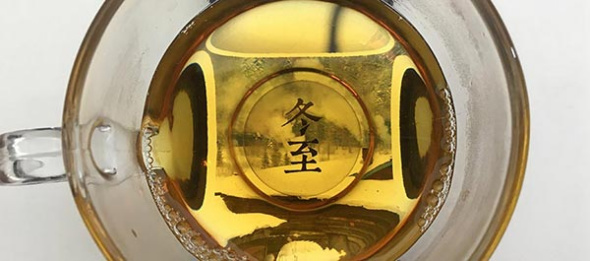
By Jocelyn Eikenburg
The late afternoon sun of winter warmed us as we bowed before the front door of that little whitewashed house in the mountains of rural Hangzhou, Zhejiang province. There we prayed to the ancestors, whose table before us carried a delicious spread of home-cooked dishes from my mother-in-law's kitchen. The tempting aromas of chili peppers, garlic and ginger mingled with the faint fragrance of papermade ancestor money burning on the ground. As I stood together with my husband and his relatives, I had this strange feeling of deja vu, as if I had been there before somehow, somewhere in my life.
And in a way, I had.
Before I married into a Chinese family from rural Hangzhou, I had never known anyone in the United States who celebrated the winter solstice as an actual holiday. But once I moved back to China with my husband in 2013, I finally had the opportunity to experience a traditional winter solstice celebration in all its splendor.
I spent much of that winter solstice in 2013 in my mother-in-law's kitchen. As she began to set the table for the ancestors - who always "eat" before we do - I began to notice something. There were many foods with round shapes on the table: the radish balls, water chestnuts and dates, sweet sesame balls, and even, to an extent, the strawberries.
"Why are there so many round foods?" I asked her.
"To symbolize family reunion," she said.
Then I remembered what my husband had told me the other day. The winter solstice is called the "little Lunar New Year", signaling the start of China's holiday season.
That's when those feelings of deja vu began to coalesce within me. This was beginning to sound a lot like Thanksgiving, the holiday I had grown up with that also revolved around food and family, setting the holidays in motion.
Sure, Thanksgiving food would never look like what my mother-in-law had prepared, and China didn't have its own version of the Macy's Thanksgiving Day Parade. Yet, these two holidays resembled each other in ways that were far more meaningful - celebration, gratitude and family. It was incredible to think that our two families, separated by continents and thousands of miles, could come together at the table for similar reasons.
Even in prayer.
I think back to that afternoon of the winter solstice in 2013, when I made a final bow to the ancestors' table, thankful for those who came before us.
It reminded me, in a sense, of that final "amen" and the nod of our heads after concluding prayers of appreciation at the Thanksgiving table, and it was powerful to imagine the similarities.
But the most powerful thing of all was the fact that I finally experienced a real winter solstice celebration with family. It would forever transform my holidays. For the first time in my life, Dec 22 was meaningful to me.


















































